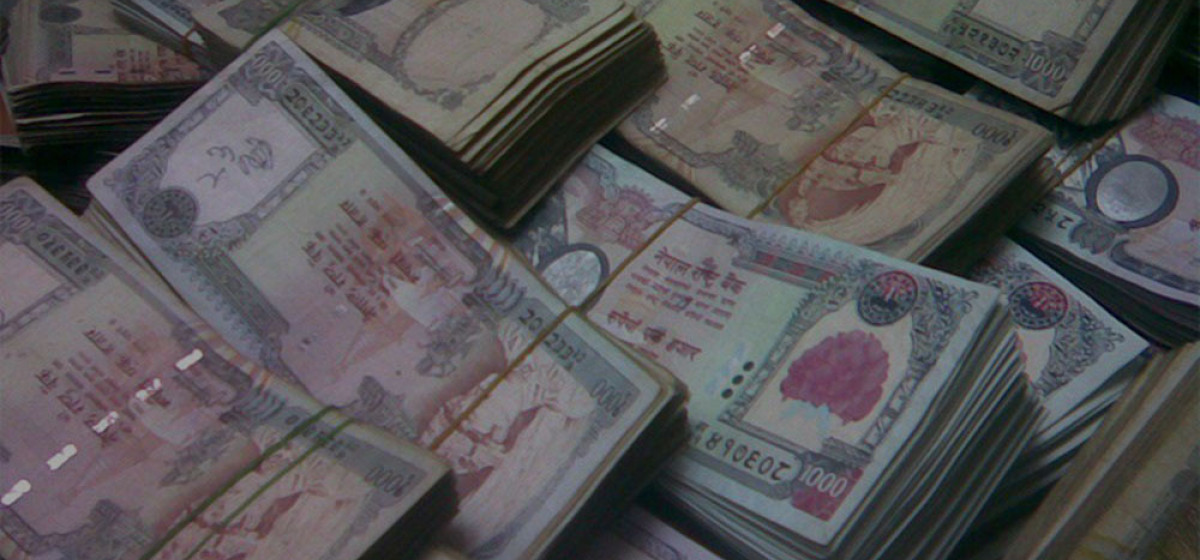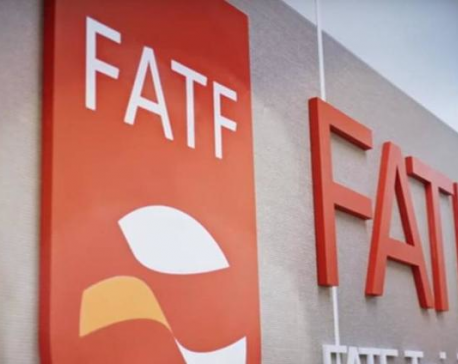
OR
Editorial
FATF blacklist: Act before it is too late
Published On: May 2, 2023 07:30 AM NPT By: Republica | @RepublicaNepal

The recent news about the Financial Action Task Force (FATF) being skeptical of Nepal's efforts on preventing money laundering should raise serious concerns for the government and its citizens. The FATF, an international organization responsible for combating money laundering and terrorist financing, has carried out three onsite inspections of Nepal in the past year due to the government's slow progress in enforcing necessary laws. This delay in taking action may put Nepal at risk of landing in the FATF's blacklist.
Nepal had previously stepped up measures to amend the Money Laundering Prevention Act 2008 and related regulations to prevent the transactions of black money. However, the government's efforts have remained in limbo for various reasons. Additionally, Nepal has been looking to amend 17 other acts related to Nepal Rastra Bank, land tax, tourism, mutual legal assistance, prevention of organized crime, and foreign investment and technology transfer, among others. It is concerning to note that even with mandatory reporting requirements for banks and financial institutions to report suspicious transactions, the central bank only recently set up a separate unit named ‘Money Laundering Prevention Supervision Division’ to oversee money laundering cases in December 2022. The slow pace of the government in taking action to prevent money laundering may result in the country being placed on the FATF blacklist.
The FATF's reports are scheduled to be unveiled in mid-September 2023, and if Nepal fails to meet the criteria prescribed by the international organizations, it might lead to further damage to the country's economy and reputation. It is crucial for the government to take swift action to avoid such a scenario. The government must endorse the legislations that are being drafted and expedite their passage through parliament. Moreover, activating the mechanism in place at Nepal Rastra Bank and establishing an effective mechanism to deal with money laundering cases should be a top priority. The government must also ensure that these mechanisms are adequately funded and staffed to perform their duties efficiently.
Nepal was previously on the FATF's grey list in 2010, but it managed to move off it in 2014 after committing to enforcing stern measures to check possible money laundering. However, Nepal risks being put back on the grey list due to its failure to introduce legislation to amend existing laws and poor reporting of suspicious and over-the-threshold transactions, particularly in non-banking sectors such as cooperatives and real estate. The global anti-money laundering watchdog has been pointing out Nepal’s strategic deficiencies in countering money laundering and terror financing due to a lack of appropriate legislation and effective enforcement of existing laws.
Nepal has made progress towards complying with the FATF’s anti-money laundering and terrorist financing standards by stepping up efforts to address deficiencies in 19 laws. However, the Asia Pacific Group on Money Laundering (APG) has pointed out the lack of adequate supervision in non-financial sectors such as real estate, bullion trade, cooperatives, and the casino sector. The cooperative sector also lacks supervision by provincial governments, oversight agencies, and regulatory mechanisms. Being greylisted could have damaging effects on Nepal's ailing economy, which heavily relies on foreign aid, remittances, and imports. Nepal may face problems such as a lack of trade opportunities and a downgrade in overall country ratings. As a newspaper, we urge the government to take the FATF's concerns seriously and take swift action to prevent money laundering in the country. Nepal's reputation and economy are at risk, and it is crucial to avoid landing on the FATF's blacklist. The government must act quickly before it is too late.
You May Like This

Finance ministry endorses five-year strategy to tackle money laundering
KATHMANDU, June 6: In an effort to avoid the country from being greylisted by the Financial Action Task Force (FATF),... Read More...

Combating money laundering in Nepal
Stakeholders are concerned that Nepal could be blacklisted or placed on a greylist (a jurisdiction under increased monitoring) by the... Read More...

Nepal narrowly escapes FATF ‘greylisting’
KATHMANDU, July 20: Nepal has narrowly avoided being placed on the 'greylist' by the Financial Action Task Force (FATF), an... Read More...











Just In
- Challenges Confronting the New Coalition
- NRB introduces cautiously flexible measures to address ongoing slowdown in various economic sectors
- Forced Covid-19 cremations: is it too late for redemption?
- NRB to provide collateral-free loans to foreign employment seekers
- NEB to publish Grade 12 results next week
- Body handover begins; Relatives remain dissatisfied with insurance, compensation amount
- NC defers its plan to join Koshi govt
- NRB to review microfinance loan interest rate







Leave A Comment